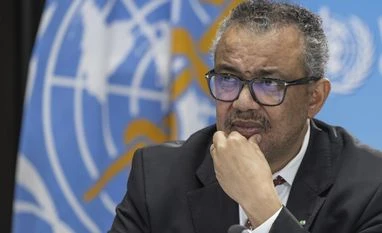The World Health Organisation (WHO) released an official statement about how Covid-19 erased the 10-year advancement in life expectancy in just two years. The statement states that the global life expectancy dropped by 1.8 years, reaching 71.4 years, returning to the 2012 level. The global healthy life expectancy also decreased by 1.5 years to 61.9 years, which was observed in 2012.
The report highlights the unequal impact felt across the globe. There are regions like the Americas and Southeast Asia which experienced a decline in life expectancy by around 3 years and healthy life expectancy by 2.5 years between 2019 and 2021. However, the Western Pacific Region saw minimal effects during the same period with 0.1 year decline in life expectancy and 0.2 years in healthy life expectancy.
The Director-General of WHO, Dr Tedros Adhanom Ghebreyesus, said that major progress continues in global health, and billions are enjoying better health, better services and protection from health emergencies. He also emphasised how fragile the progress can be. The pandemic has erased the 10-year advancement in just two years. The new pandemic agreement is very important in strengthening global health security, protecting long-term investments in health, and promoting equity within and between two countries.
Health challenges
The WHO report also highlights the health challenges faced by refugees, migrants and any person with disabilities. In 2021, around 1.3 billion people or 16 per cent of the global population had a disability. This group is disproportionately affected by the health inequities resulting from avoidable, unjust and unfair conditions. The report stresses health hurdles faced by individuals with disabilities, migrants and refugees.
Triple billion targets
According to WHO, around 1.5 billion people have experienced better health and well-being since 2018. But the progress is impeded by challenges like rising obesity rates, persistent air pollution, and high tobacco use.
Universal Health Coverage has expanded to encompass 585 million more people, although this is still less than the target of one billion. Only 777 million individuals are likely to be protected during health emergencies by 2025 which will again fail to meet one billion which is highlighted in the 13th General Programme of Work.
“We have made progress towards the triple billion targets, since 2018,” said Dr Samira Asma, WHO Assistant Director-General for Data, Analytics and Delivery for Impact. She also mentioned that data is WHO's superpower and the organisation is using it to deliver more impact in countries. “Without accelerating progress, it is unlikely that any of the health SDGs will be met by 2030," she added.
)